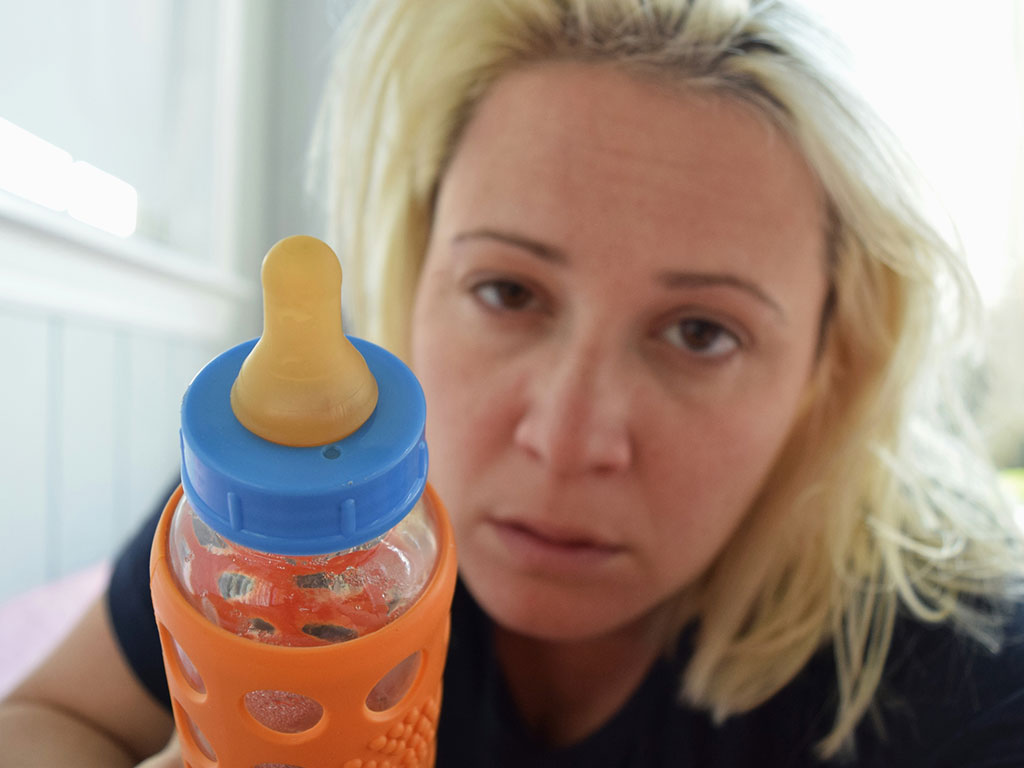by Karen K.C. Gibson
Mothers-to-be experience a rollercoaster of emotions during and post-pregnancy. An increase in hormones is bound to have an impact on your emotions, and physical exhaustion can make everything even more challenging. Emotional turbulence tends to hit hardest during the first trimester as your body adjusts to changing hormone levels. For some women, mood swings are one of the earliest signs of pregnancy, starting as soon as the fourth week.
Many mothers experience the “baby blues,” or feel sad or empty within a few days to a few weeks of giving birth. This is typical and should be expected. Most women experience PPD (Post-Partum Depression) symptoms within the first few weeks of giving birth (often within six weeks). However, some moms do not develop symptoms until after six months. Women with PPD can experience symptoms for a few months or longer. In fact, studies have found that PDD can even last up to three years after birth. According to recent studies from Stanford University, up to 20% of women suffer from mood or anxiety disorders during both the gestation and postpartum periods.

Mothers may experience excessive worry, restlessness, and anxiety after childbirth. This can manifest as racing thoughts, difficulty sleeping, and physical symptoms like rapid heartbeat. According to psychologist Dr. Joan Rosenberg, in response to any given situation, we might experience eight common unpleasant feelings: shame, sadness, helplessness, anger, vulnerability, frustration, disappointment, and embarrassment from time to time. During pregnancy and post-pregnancy, the hormonal changes in a mother’s body might cause them to question their worth one moment, and then at other moments, their hearts overflow with unconditional love and happiness.
Many people have never been taught how to handle their feelings, and feelings cannot be controlled. We, however, have power over how we respond. When babies cry, a mother’s instinct is to nurture their little ones. When sleep deprivation and hormonal changes are added, mothers can feel overwhelmed by unrealistic expectations. Knowing that the emotional rollercoaster ride is normal and expected may provide a healthier perspective for moms who feel that something is wrong.
Guilt can come from unrealistic expectations from family members, ourselves, society and social media. Mothers sometimes feel guilty about screen time, breastfeeding, or whether or not they’re teaching their infant sign language. Frustration from being unable to stop a newborn from crying, sleep deprivation, marital challenges, or questioning why their home is a constant mess can lead to mental and emotional exhaustion.

The physical changes accompanying pregnancy, such as nausea, fatigue, and discomfort can lead to a mix of emotions, including frustration, impatience, and even despair. Body shape and weight gain changes may lead to mixed feelings about body image, self-esteem, and identity. The uncertainty of what lies ahead, and the anticipation of major life changes can lead to a general sense of fear and unease when all of these factors are combined.
Tips on Emotional Management:
Being a mom is one of the most rewarding experiences in the world, but it can also be very challenging. Don’t hesitate to ask friends and family for support. Often, the people you love want to help but aren’t sure if, when, or how to reach out and offer their support.
Talk about how you feel and check in often with your partner, close friends and loved ones. Let your tribe know how you are doing. It is not healthy for you or your family to hold it all in. What are your biggest fears? What makes you feel the most stress? How can your tribe help? Many fears and worries melt away when mothers hear that their worries are shared by many moms who doubt their own parenting journey.
Try to engage in fun activities and take time for self-care every day. Watch a favorite movie or go for walks with a friend. Find some time for a favorite hobby. Join a mommy/baby group, such as Family Hui, and surround yourself with support. Feeling happy and calm allows your baby to develop in a positive happy environment. Emotions like stress and anxiety can increase particular hormones, affecting your baby’s developing body and brain.


One way to take care of your body and regulate your emotions during pregnancy is to eat a healthy and balanced diet. This will not only help you maintain a healthy weight, but it will also provide your growing baby with the nutrients they need to develop properly. By prioritizing your physical and emotional health, you can ensure that you are able to be the best possible mom to your little one. However, it is totally okay to satisfy your pregnancy cravings, and you shouldn’t feel guilty for the occasional indulgence.
Find ways to manage stress and make time for a stress-relieving activity daily. Find what works best. Try yoga, meditation, or guided imagery. Write about your feelings and worries. It may help to write down fears about having a baby or becoming a parent. Share this with someone trustworthy. Decide which worries are minor and let them go.
It’s important to note that experiencing a wide range of emotions during and after pregnancy is normal. However, if moms struggle with intense or prolonged feelings of sadness, anxiety, or other emotional challenges, it’s crucial to seek professional help. Healthcare providers, therapists, and support groups can offer valuable assistance during this transformative time.
For parenting support, please visit Karen K.C. Gibson’s website: lettinggowithaloha.com





